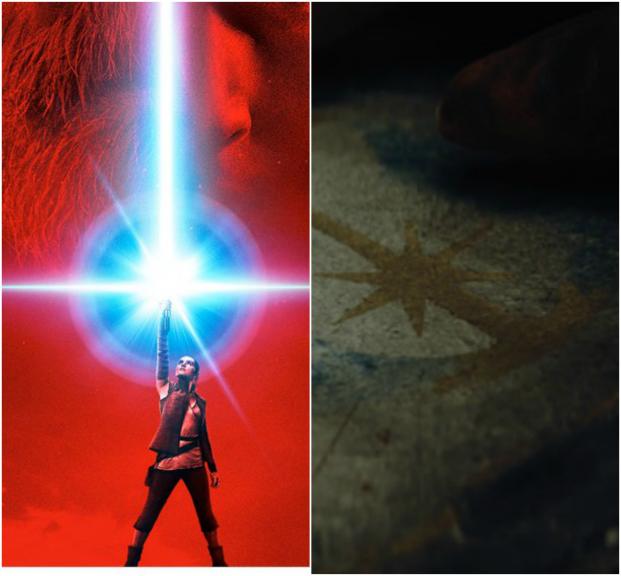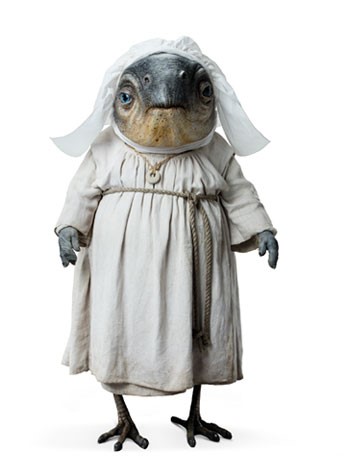According to this passage from Wookiepedia the costumes were inspired in part by an Spartan existence.
Rian Johnson, the writer and director of The Last Jedi, wanted the
Lanais to bear resemblance to nunnery in real life. They were designed
by Neal Scanlan's crew, and Michael Kaplan made their working costumes
which reflected "a nun-like, spartan sort of existence."
However, Jake Lunt may hint at a Medieval aspect, as he was directed to depict the Caretakers in concept art, with a monastic lifestyle...
StarWars.com: All right, let’s talk Caretakers. How did you get
started on this design?
Jake Lunt Davies: They came before the porgs and again, that was a
one-word brief: “puffin people.” Okay, so it was more than a one-word
brief…two words: “puffin people.” And then we were told that they were
going to be sort of nuns. They were not necessarily a holy order, by
like nuns they were an all-female community of indigenous aliens that
lived this slightly monastic lifestyle. They had some role that was
important to the Jedi, perhaps. That was kind of it, really.
Just to add to that idea, I also found the following interesting in terms of Medieval Monasticism, which the 13th Century is when monastery lifestyles began to decline, until it was revived again in the 19th century. The following practices seem in line with how the Caretakers are described and depicted...
During the medieval period, monasteries were the centers of knowledge
and education. They maintained schools and libraries, and were
responsible for copying manuscripts. And although monasteries were
founded with the idea of withdrawal from monastic life, they became a
major force in the secular world of agriculture and government. They
generally were founded by wealthy feudal lords, who then appointed
their sons and daughters abbots and abbesses. (Monasteries were a
convenient place to send second sons, who might become overly
ambitious and seek to displace the oldest son in feudal succession.
They were also useful refuges for daughters unable to find noble
husbands.) Many monasteries became wealthy estates, with large land
holdings that employed thousands of workers. Thus, the abbot or abbess
of a large monastery could wield great secular power.
Ultimately, there seems to be a hodgepodge of ideas going into the female (Caretakers) and male (Visitors) Lanai from early monastic, to dialogue and some customs similar to the Scottish, Spartan-inspired nun-wear, and as species that may be an extrapolation to the Porgs, but evolved.
I know this does not 100% answer your question, but I think there is some evidence to suggest that they were also thinking about aesthetics/appearances in terms of Medieval Monasticism, which is not unlike some of the narratives of Bosch's works being religious and creating art during The Renaissance, transitioning from Medieval/Middle Ages to Modernity.
In addition there have been more direct Christian-like aspects coming into the franchise, including the Church of the Force and the Journal of the Whills, whose symbol briefly turns up in The Last Jedi and may be seen as an analog to the real world Bible.

There is no evidence to suggest that the Lanai are interested in Jedi philosophy or The Force, but the correlation between their maintenance of the Island's structures and the fact that the Jedi have been allowed to use them, is surely interesting/curious thing to think about. We still don't know who put the ancient Jedi text on the Millennium Falcon.


